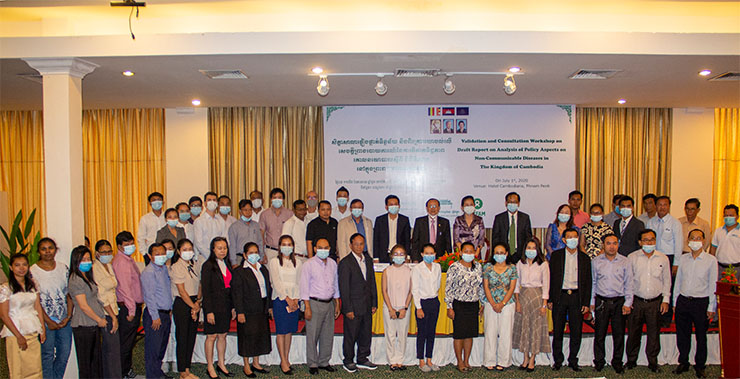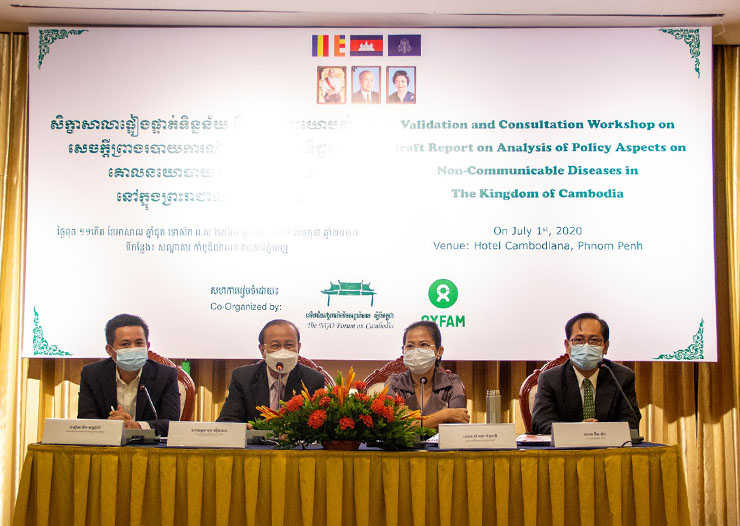
Phnom Penh, 01 July 2020 The NGO Forum on Cambodia, in collaboration with Oxfam, organized a workshop to verify data and consult on a draft report on the analysis of non-communicable disease policy aspects in Cambodia at Hotel Cambodiana, Phnom Penh. There were 72 participants (27 women) from representatives of relevant ministries, the private sector, development partners, national and international civil society organizations, higher education institutions and journalists.
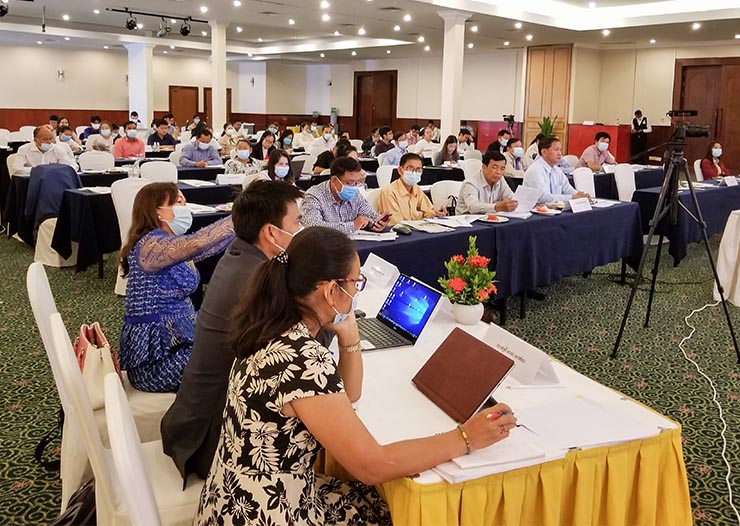
The consultation workshop was organized for two main purposes which are:
• To consult, discuss and share information to relevant stakeholders include line ministries development partners, private sectors, academia, communities about Non-Communicable Disease analysis and legal aspect on 5 non-communicable investment case which focus on priority policy, opportunities and challenges of non-communicable disease in particularly vulnerable women in Cambodia.
• To provide the opportunity for participants to illustrate the best-case scenario, action plan and its budget to solve the issue related to non-communicable disease in Cambodia.
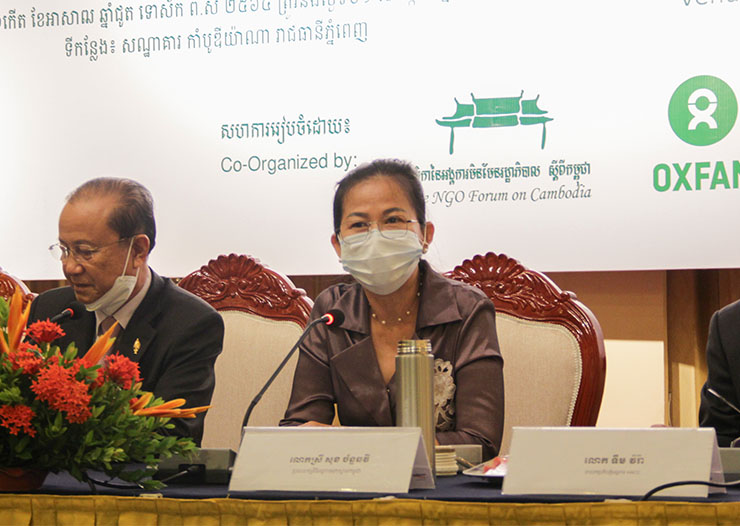
According to Oxfam, director of Oxfam program, today’s consultation with stakeholders is an important effort to better identify the consequences and impacts of non-communicable diseases, especially on women and vulnerable groups, as well as reviews of government policies. All of these findings provide stakeholders the opportunity to seek strategies for supporting and promoting the necessary public services in response to NCDs in Cambodia, which accounted for 64% of the total mortality in 2018 Serious burdens have been placed on the national economy through the need for treatment and care and a decline in labor productivity. She stressed that Oxfam strongly believes that all stakeholders, especially the Government and development partners, national and international, donors will pay attention in response to proposed recommendations, formulate sustainable policies that benefit them. To the most vulnerable groups, raise funds to reduce these infections, especially for women and vulnerable groups. Oxfam with the National Budget Team will continue its dialogue with relevant national and international organizations and civil society to work together to reduce the non-communicable diseases of vulnerable women and vulnerable groups in Cambodia.
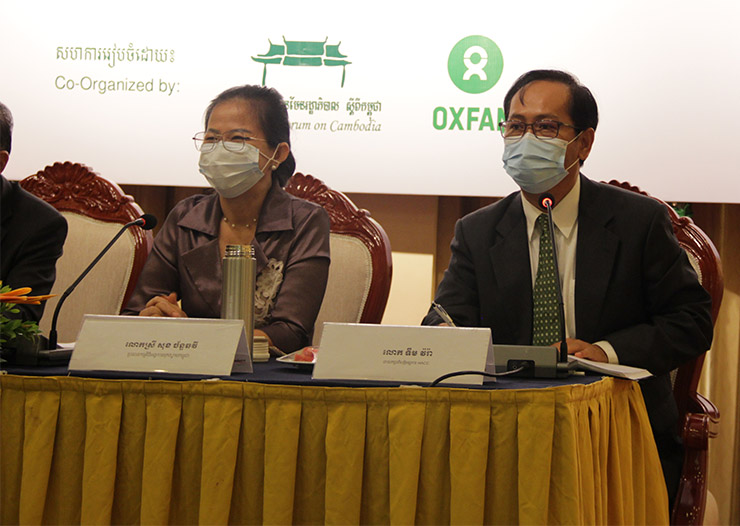
Mr Tim Vora, Executive Director of HACC, has raised about the Infectious Diseases (ID), which he mentioned that it has broadly recognized, and there has been a lot of intervention on those. Furthermore, there is a lot of success and a good story which so far, the government’s goal and indicators have been achieved within the MDGs and other government policies related, for instance, HIV/AIDS, Tuberculosis(TB) and …etc. But for the NCD is massively increased, 41 million in the globe, while 64% in Cambodia. He illustrated that the Royal Government of Cambodia promulgated a lot of policies to respond on this, however, it was not like the intervention for the Infectious Diseases. He shared that the NCD need a lot of time to treat and there is a lot, but there are four types that are common such as: cancer, chronic respiratory diseases, Cardiovascular diseases and Diabetes a well as more twenty. In that event, he shared the suggestion as below:
• Should increase the awareness raising to the relevant stakeholders
• Ensure that we can access the information
• Should encourage youths to produce the app and sharing
• Increased budget to this sector
• Law enforcement and take more actions
• Increase the public spaces for a citizen to do exercises
• Strengthening and follow up at community and build community network on NCD
• Increase taxes on tobacco, cigarette, wine and allocate these taxes to NCD.
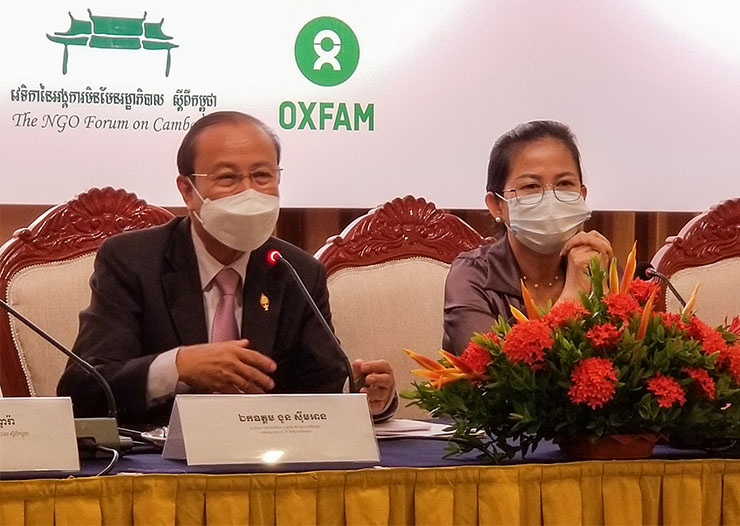
H.E NGHOUN Saman, before giving a keynote, his excellency equipped about hierarchy of the National Assembly. He said that there are 10 committee and he is from the 8th National Assembly which this committee is working focus on 4 sectors (Health, Social, Labor and Women affair). He was also shared the participants about the NA’s commitment to work on NCD such as, NA worked with WHO to conduct the awareness raising in Thbang Khmum province. NCD is the a-hide face killer which it has been burdened the Cambodian’s economy. Regarding to the budget allocation, he found that the RGC has a triple increased to health sector, which this is based on the GDP growth. He shared about the key factors of the NCD such as: 1) inactive physical exercise 2) lack of food control 3) using alcohol (wine, and beer). Dealing with these issues, he suggested some recommendation including information sharing, awareness raising and integrated the NCD in the school curriculum. In his last speech, he welcomed the participation from development partners, NGOs, private sectors and encourages them to participate to combat for this issue.
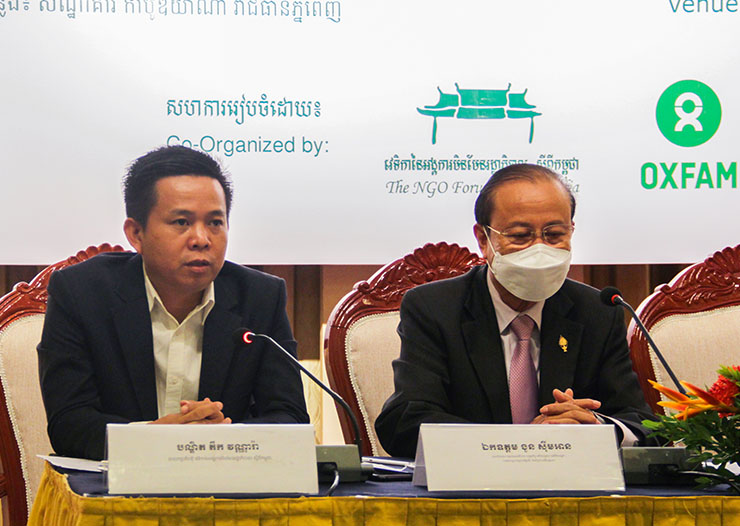
Dr. TEK Vannara, Executive Director of the NGO Forum on Cambodia warmly welcomed all the relevant stakeholders who spent their value time to attend a such important consultative workshop. Overall, in his remarks focused on 4 important things: firstly he stated about the objectives of the workshop including 1) To consult, discuss and share information to relevant stakeholders include line ministries development partners, private sectors, academia, communities about non-communicable disease analysis and legal aspect on 5 non-communicable investment case which focus on priority policy, opportunities and challenges of non-communicable disease in particular vulnerable women in Cambodia, and 2) To provide opportunity for participants to illustrate the best-case scenario, action plan and its budget to solve the issue related to non-communicable disease in Cambodia. Secondly, he informed about the Budget Working Group (BWG) with 12 members from local and international NGOs, while the NGO Forum on Cambodia plays as the secretariat and working entire 25 provinces. The purpose of the BWG is working to promote the transparency and accountability and fiscal management, which thus far, they have worked working closely with the Ministry of Economic and Finance. Aside from this, the BWG has linked their work to the regional as well. Thirdly, regarding to the NCD he shared the concern on the death rate from this disease, which it so far increased the burden for the socio-economic, and he has also raised about the significant of the study which can inform and alert all the stakeholders to take into account. However, he needs more inputs, and all the comments and inputs, the NGO Forum on Cambodia will compile and bring to debate with the relevant stakeholders. Finally, Dr. Vannara gave a recommendation for improving the NCD in Cambodia including a) school curriculum should integrate the NCD. b) diet people in Cambodia should have the discipline c) Take consideration on the pesticide management and promote to have home gardening.
